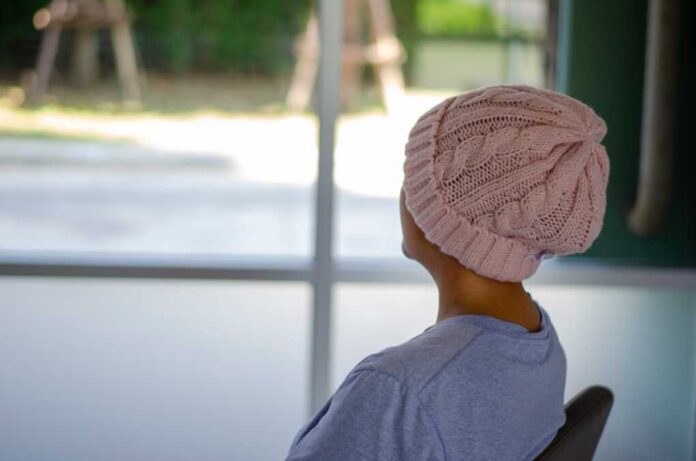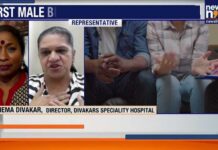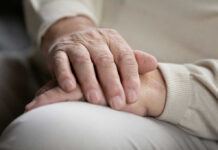
Young adult cancer patients are finding hope through specialized programs that bridge the critical gap between pediatric and adult oncology care, offering targeted medical treatment alongside vital social and emotional support.
At a Glance
- Nearly 100,000 young adults (ages 15-39) are diagnosed with cancer annually in the U.S., facing unique challenges different from pediatric or older adult patients
- Cancer incidence in adolescents and young adults has increased by nearly 30% from 1973 to 2015
- Comprehensive AYA (Adolescent and Young Adult) cancer programs offer specialized services including fertility preservation, career counseling, and peer support
- Programs like those at MD Anderson, Mayo Clinic, and UNC have expanded their reach, improving access to guideline-concordant care
- These programs emphasize patient voices through advisory boards and continuous feedback mechanisms
Meeting Unique Needs During a Critical Life Stage
Cancer diagnoses during young adulthood create distinctive challenges that standard oncology programs often fail to address. These patients find themselves in what Sophie Steiner, a teenager whose experience inspired the University of North Carolina’s AYA program, called a “no-man’s land” between pediatric and adult cancer care. The disruption of a cancer diagnosis hits differently for young adults who are simultaneously establishing independence, pursuing education, starting careers, and forming significant relationships—all developmental milestones that cancer treatment can derail.
This recognition has spurred the development of specialized programs at major cancer centers nationwide. MD Anderson’s AYA Program supports patients during active treatment and survivorship, addressing challenges like coping strategies, relationships, fertility, education, career goals, long-term health, and quality of life. Mayo Clinic’s program, which began formal enrollment in 2022, focuses on improving education, clinical trial participation, and building support networks tailored to young adults’ needs.
Seth and many patients like him are able to get the care they need thanks to specialized #AYACancer programs like @MayoClinic's, which are dedicated and tailored to help adolescents and young adults at every point in their cancer journey. #AYAware #AYACSM https://t.co/JEERsO9F5V
— Mayo Clinic Comprehensive Cancer Center (@MayoCancerCare) April 8, 2025
Comprehensive Support Beyond Medical Treatment
These specialized programs recognize that effective cancer care for young adults extends far beyond medical treatment. At the MD Anderson AYA Program, services include clinic visits with medical providers and a multidisciplinary team of social workers, vocational counselors, nutritionists, and genetic counselors. Their psychosocial and supportive care services offer counseling, financial assistance, educational assessments, and vital peer support—connecting patients with others who truly understand their experience.
Fertility preservation represents another critical component of AYA programs. MD Anderson’s onco-fertility services provide fertility risk assessments, counseling, and referrals for preservation options before treatment begins. UC Davis Comprehensive Cancer Center takes a similar approach with its evidence-based, coordinated care model, recently hosting a “Pushing Past Cancer 2024” event focused on sexual wellness after cancer—a topic often overlooked in standard oncology settings but vital for young adult survivors.
Growing Impact and Future Directions
The impact of specialized AYA programs is becoming increasingly evident. The University of North Carolina’s program, inspired by Sophie Steiner and supported by the Be Loud! Sophie Foundation, has expanded its reach from just 6% to over 25% of AYAs treated at the institution. This expansion has led to higher clinical trial enrollment, better documentation of advanced care planning, improved treatment adherence, and reduced acute care utilization among young adult patients—all critical metrics for measuring success in oncology care.
The Young Adult Support Program at Simmons Comprehensive Cancer Center takes community-building a step further by helping patients connect, socialize, and share experiences through support groups and social activities. Recognizing the impact on relationships, they’re expanding services to include partners and spouses of young adult cancer patients. Program leaders across institutions emphasize patient voice and experience, with many establishing AYA Advisory Boards to ensure services remain relevant to those they serve.
During #NationalYoungAdultCancerAwarenessWeek, we’re featuring the AYA Oncology Program at @UChicagoMed — a collaborative initiative providing comprehensive, age-specific cancer care for patients ages 15–39. @UChicagoHemOnc
Learn more about the program 👇https://t.co/NwYGBUKErx pic.twitter.com/c6QKj1lZ3I— UChicagoCancerCenter (@UCCancerCenter) April 4, 2025
Addressing Global Disparities
While progress in AYA cancer care is encouraging, significant disparities remain, particularly in low and middle-income countries. These regions face additional challenges including lack of cancer registries, inadequate infrastructure, and insufficient psycho-social support systems. The global burden of AYA cancer care reflects poorer survival rates in these regions, highlighting the need for broader implementation of specialized programs and international collaboration to address the unique needs of young adults with cancer worldwide.
As comprehensive AYA cancer programs continue to develop, their holistic approach serves as a model for filling the critical gap between pediatric and adult oncology. By addressing the medical, psychological, social, and practical needs of young adult cancer patients, these programs aim to improve not only immediate quality of life but also long-term outcomes for a population that has historically fallen through the cracks of cancer care systems.


















